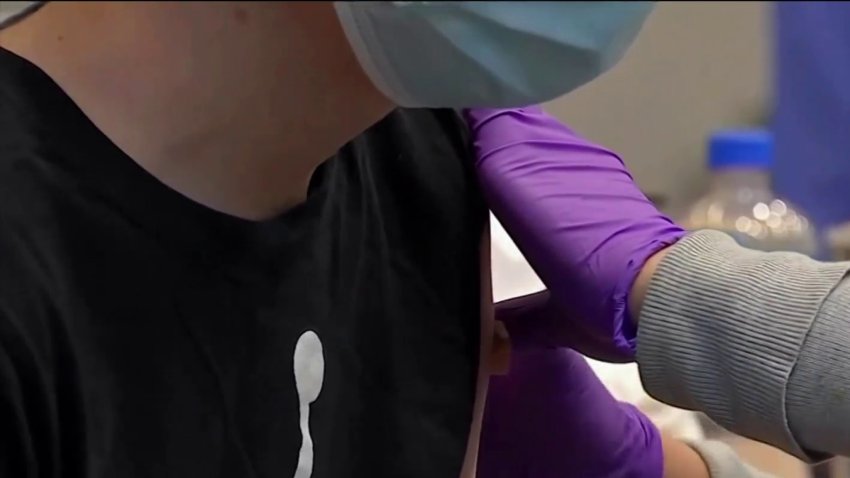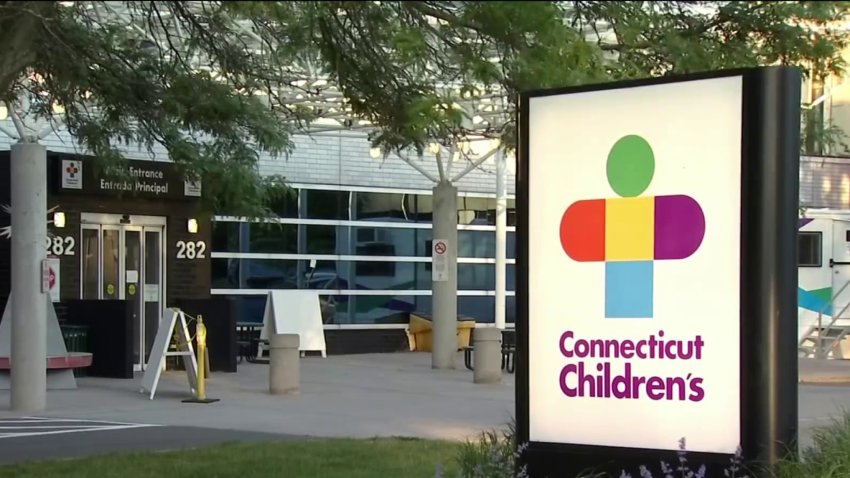A 17-year-old young man from Naugatuck on medication and he is being monitored after doctors discovered he had pericarditis, an inflammation of the lining outside the heart, and it was discovered soon after he received a COVID-19 vaccine.
At least 18 teens and young adults in Connecticut have shown symptoms of heart problems after receiving the COVID-19 vaccine, acting health commissioner Dr. Deirdre Gifford said Monday.
Gifford said all but one of the young adults hospitalized for signs of heart problems have been released. Four of those young residents were hospitalized at Yale New Haven Health and three at Connecticut Children's.
Health officials say the reported cases appear to be mild and typically begin within four days after the second dose of the Pfizer and Moderna vaccines.
The Centers for Disease Control and Prevention said it is investigating if there is a link between the vaccine and a heart condition known as myocarditis.
Get top local stories in Connecticut delivered to you every morning. Sign up for NBC Connecticut's News Headlines newsletter.
The first case at Connecticut Children’s was Rachel Hatton’s 17-year-old son Gregory.
“It’s terrifying,” said Hatton, who lives with her son in Naugatuck.
Hatton said her son started complaining of severe chest pain three days after his second dose. It worsened on the fourth day and led to back pain.
So, Gregory went to a walk-in clinic where they ran blood work and did an X-ray and discovered he had pericarditis, an inflammation of the lining outside the heart.
A spokesperson from Connecticut Children’s said patients have presented with both pericarditis and myocarditis, which is the inflammation of the heart muscle.
He was transferred to Saint Mary’s Hospital in Waterbury and then to Connecticut Children’s in Hartford.
“They hooked him up to a heart monitor, did more EKGs, echocardiograms. Infectious disease actually came and ran their own set of blood work to try to figure out if it could have been caused by something else, some sort of infection, something else, like Lyme disease. They tested him for all sorts of things and one by one those tests came back negative,” said Hatton.

Doctors still couldn’t say if his condition was related to the COVID vaccine, but they called him back in for an MRI after two more patients presented with similar symptoms.
Hatton said Gregory is now out of work, on medication and hooked up to a heart monitor. Doctors plan to do another MRI in June to see if his condition improves.
“I don’t sleep because I’m constantly, if I hear my son sneeze or if he sounds like he’s out of breath when I call him on my break at work, I get nervous because I just don’t know what else could happen. He basically has a heart condition now and it’s terrifying,” said Hatton.
NBC Connecticut spoke with other parents of teens who received their first dose of the vaccine and are schedule to get their second.

“I can’t believe that the government would really put out a shot that would really negatively impact the health of my child so I’m behind the vaccine 100%,” said Heather Salgado, of Wethersfield.
“I’m just trusting the science and the recommendation is to get the vaccine,” said Theresa Galizia, also of Wethersfield.
But others are still holding off.
“With that age group, we did have a little bit of concern because they are still growing,” said Karn Collard, of West Hartford.
“It’s one thing for me to get the vaccine, but for my child to get the vaccine, it’s kind of scary not knowing what’s going to happen and not having a lot of research having been done on it,” said Siobhan Cefarelli, of West Hartford.
Hatton said she is sharing her son’s story because she wants parents to be aware. Despite doctors saying the condition is rare, Hatton said it doesn’t feel rare when it’s affecting your own child.
“I’m not trying to deter people from getting the vaccine, because my son, if you spoke with him, he would tell you to still get it,” Hatton said. “Me, being his mom, I’m definitely torn. So, I just want people to be aware and be more informed because now they want to give this vaccine to younger and younger children and it’s terrifying. I wouldn’t want any other parent to go through what we’ve been through.”
Stories from LX News
LX, or Local X stands, for the exponential possibilities of storytelling in our communities.
In mild cases of myocarditis, common symptoms include chest pain and shortness of breath.
In more serious cases, symptoms can include rapid or abnormal heart rhythms, shortness of breath during rest or physical activity, fatigue, and fluid retention with the swelling of limbs.
Medical experts at Mayo Clinic say myocarditis can be fatal if not treated immediately. Heart failure, heart attack, stroke, and sudden cardiac death can occur in severe cases.




